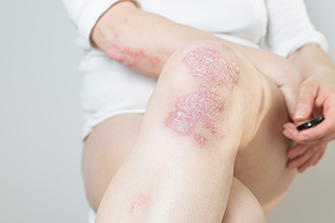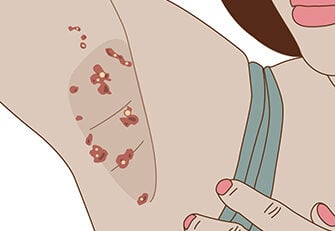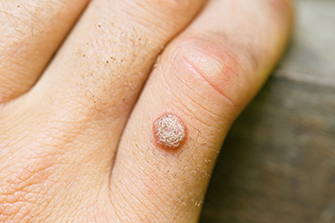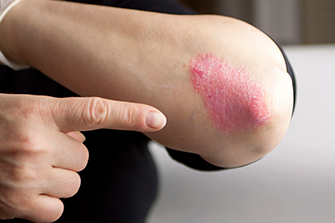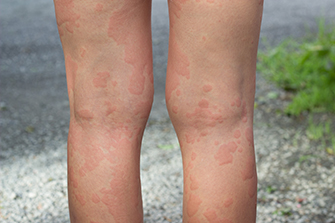How to Manage Plaque Psoriasis: 3 Ways
3 Ways to Manage Plaque Psoriasiss
Plaque psoriasis is a difficult condition to deal with. It can be painful, unsightly, and often embarrassing for the people who experience it. While there are many over-the-counter options to choose from, sometimes it just isn’t enough, and it seems like your psoriasis is getting worse and worse. If you’re looking for new ways to manage your plaque psoriasis, we are here to help. Keep reading to learn more about the three best ways to manage plaque psoriasis, including trying brand-new investigational treatments in a Plaque Psoriasis Clinical Trial.
Knowing Your Triggers
Psoriasis plaques appear as raised, inflamed, and scaly patches of skin that may also be itchy and painful. On Caucasian skin, plaques typically appear as raised, red patches covered with a silvery white buildup of dead skin cells or scale. On skin of color, the plaques may appear darker and thicker and more of a purple or grayish color or darker brown.
Plaques can appear anywhere on the body, although they most often appear on the scalp, knees, elbows, and torso. Plaques generally appear symmetrically on the body, affecting the same areas of the body on the right and left sides. Psoriasis on certain locations, called high-impact sites, can have an increased negative impact on quality of life, regardless of the total area affected by psoriasis.
One of the best ways to manage flare-ups of these plaques is to know your triggers. Common triggers of plaque psoriasis include:
- Certain medications
- Starting or stopping medicines
- Infections
- Injury to the skin
- Stress
- Tobacco or alcohol use
Seek Professional Treatment
If over-the-counter treatments aren’t cutting it and you’re doing your best to manage your triggers, it might be time to see a doctor and seek professional treatment. Some of the most common treatments for plaque psoriasis include:
- Topicals: Creams/ointments to put directly on the plaques
- Phototherapy: Exposing the skin to ultraviolet light
- Systemics: Prescription drugs, including biologics and oral treatments
- Complementary and integrative medicines
Try a Plaque Psoriasis Clinical Trial
If you’re ready to try something new or different to treat your stubborn plaque psoriasis, you may be perfect for our Plaque Psoriasis Clinical Trial.
Qualified persons will receive study-required medical care and the investigational medication or placebo at no cost. The study will not pay for other medical care or current medication(s) needed to support your daily healthcare routine. You will be in the study for around one year and visit the study doctor or clinical research staff around 15 times.
Click here to fill out a short form with your contact information if this sounds like you:
- You are 18 years or older
- You have been diagnosed with or think you may have plaque psoriasis
- Your psoriasis covers no more than 15% (about 15 handprints) of your body
- Your psoriasis affects at least one of the following: scalp, face, body folds or genital region and additionally one other area of your body
For more information, visit us at CahabaClinicalResearch.com

